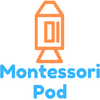|
Not to get dramatic or space-agey, but, the statement in the title isn't that far off.
AI and robotics have changed the landscape of the world as we know it. Today, various professions - from healthcare to food production and beyond - utilize new technologies to increase efficiency and accuracy. Positions that are available to professionals today look very different from even 10-20 years ago. This trend is set to continue as technology continues to expand. This means the positions available to your child in 20 years may be things we've never even heard of today. If we continue to teach them what we were taught, in the manner in which we were taught, will they be prepared for this new world? The simple answer is: probably not. But, How Do We Teach What We Don't Know? Good question. In short, we cannot teach specific tactics and techniques and expect them to be useful in the future. Instead, we must rely on instilling the importance of continued learning, and garnering passion and excitement for it. We must teach skills that will never lessen in importance: leadership, inclusivity, perseverance, and more. Which brings us to where we are today. We believe that the methods employed by Montessori, from the start, are a critical building block for developing tomorrow's leaders. We believe that encouraging exploration, allowing questions, and focusing on individual passions and strengths are integral for developing future professionals who are able to think outside the box and do big things. Along with this, while we may not know exactly what technologies will be prominent a decade or two from now, we do know that establishing key STEM concepts along with robotics, will help students begin to "think" with a different mindset - one that prepares them to adapt when technologies shift, instead of having to start from scratch. Parents who recognize this shift today, and take the steps necessary to ensure their children are prepared - even from a very young age - and who are willing to look at education through a different lens, will notice pay offs down the road, whether they're clear today or not. Interested in learning about alternative options for early elementary school? Contact us today. We can't wait to share more about what sets MontessoriPod's Montessori+ curriculum apart. When you think of your own school experience, what comes to mind?
Friendships? Sure. Great teachers? Of course. Amazing field trips? Maybe. But, what about the skills and lessons that were taught along the way? What about your actual learning experience? How can you say that has influenced who you are, how you work, and how you learn, today? Those answers might take a little longer to come up with, especially if you were educated in a standard school environment, outside of the Montessori method. It Comes Down to Approach Throughout history, "traditional" education has changed very little. Teachers share information. Students take in that information (though the method of presentation may look different today than say, 50 years ago). Then, the students are tested on the information, either through actual tests, presentations, or reports. The students receive a grade. Then, the class - all together - moves on to the next lesson. Yes, there are exceptions, and certain students may receive extra help, or supplemental learning opportunities. But, for the most part, this is the standard. As the process repeats, information learned in earlier units is replaced with new information and - often - forgotten. Additionally, students are "judged" or "ranked" based on how well they're able to recite back the information that has been presented to them, in the manner that best suits the teacher's needs. The same goes with projects. Specific rubrics and steps to follow are provided, offering little room for individuality. Final projects may look different, but they're all graded according to the same - often very specific - rubric. The students who try something different, or express different views? Well, they're often graded under standard for taking the risks. So, risk taking decreases. The students who struggle to learn according to the single standard the teacher is expecting? They're graded poorly. So, they begin to think they're "below" their classmates in ability. Standardization is rewarded. Difference is penalized. Students fall in line until graduation. Then what? What happens next? The system continues through college. Rhetoric may be encouraged more, but the hard-fought lessons of elementary and high school remain: Fall. In. Line. Next up comes the real world. The students move forward into their brand new shiny jobs, just like you and I did. And, even though graduation is in the distant past, the innate process remains the same: meet expectations. Don't make waves. Follow the pack. For some individuals, maybe this is okay. But, we're guessing maybe, as a parent, you want more for your child. So do we. Starting Early is Essential Here's the thing: if you want your child to take away more from their education than the things you think of when you look back at your own, those lessons must be instilled early, from the very start. If a school doesn't focus on individual learning styles, on fostering leadership, on setting high expectations and letting students figure out how to meet them, on individual schedule and task management, on asking questions, mostly, on learning to learn, then why would the end result be any different? Why would those highly-sought-after qualities develop at all? They won't. Changing the future and instilling a love of learning starts with the expectations and environments you set before your child at the start of their educational experience. The change starts with the decision you make as to where and how your child will be educated. It's a simple choice but it could make a world of difference for the future. What are your expectations for your child's learning experience? Are you ready to consider an alternative option? We'd love to talk, in fact, these are questions we hope to be able to answer and problems we will solve with our unique, Montessori pod approach. Contact us today to learn more. |
ArchivesCategories |



 RSS Feed
RSS Feed